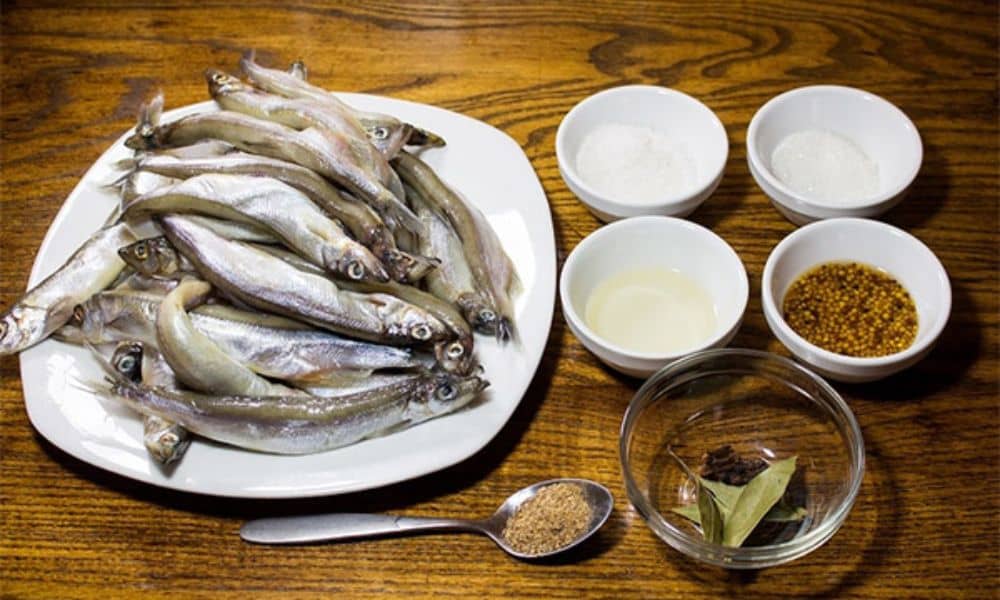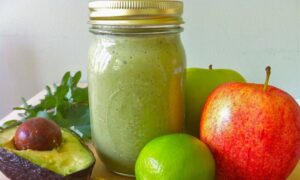Capelin fish has received new attention in recent years due to its historical place in traditional diets and its use in fish roe (masago) with sushi and seafood dishes.
However, with the continued awareness of hormonal health, many are asking things along the lines of: does Capelin fish affect estrogen levels – and if so is it having a positive or negative impact on your body? We will look at the research, nutrition, and risks of Capelin fish and the potential impact on hormonal balance, especially estrogen.
What is Capelin Fish?
Capelin fish has received new attention in recent years due to its historical place in traditional diets and its use in fish roe (masago) with sushi and seafood dishes.
However, with the continued awareness of hormonal health, many are asking things along the lines of: does Capelin fish affect estrogen levels – and if so is it having a positive or negative impact on your body? We will look at the research, nutrition, and risks of Capelin fish and the potential impact on hormonal balance, especially estrogen.
Nutritional Profile of Capelin
Capelin fish, though small in size, packs a significant nutritional punch. A 100g serving of Capelin offers:
Protein: 15–20g
Fat: 6–10g (rich in Omega-3s)
Calories: 120–160 kcal
Vitamin D: High levels
Minerals: Phosphorus, selenium, iodine
Cholesterol: Moderate (can vary with preparation)
Roe (Masago): Contains bioactive compounds including phospholipids and steroid hormones
Because of this nutritional profile, Capelin is often considered a heart-healthy and brain-boosting food. However, concerns arise when we examine its potential hormonal effects.
Estrogen and Your Body: Why It Matters
Estrogen is an important hormone for all humans; it is less central to men’s physiology than women’s physiology. This hormone is important for: ·
- Regulating menstrual cycles
- Bone and skin health
- Cholesterol levels
- Mood and cognition
If hormone balance is disrupted, whether by diet, medications, or environmental exposures, it may contribute to:
- Irregular periods
- Trouble with mood
- Lack of energy
- Problems with fertility
- Hormonal disorders (i.e. polycystic ovarian syndrome or estrogen dominance)
Does Capelin Fish Influence Estrogen?
The Capelin fish itself does not contain estrogen, but the row (masago) and fatty acid composition of these fish may have some indirect hormonal influence.
1.Phytoestrogens and Endocrine Active Compounds
Capelin does not contain phytoestrogens (plant based estrogens), but it does accumulate environmental toxins such as PCBs (polychlorinated biphenyls), dioxins and heavy metals, which can affect the hormonal system. These chemicals can be considered endocrine disruptors because they can mimic or block the body’s natural hormones like estrogen.
Long term high consumption may lead to:
• Estrogen imbalance
• Disrupted menstrual cycles
• Increased risk of hormone related cancers (breast, ovarian)
2. Fish Roe and Hormonal Traces
Certain research has suggested that fish roe (including masago) has biologically relevant trace levels of steroid hormones, as it plays an important role in reproduction among fish. While the amounts are generally low, long-term consumption may pose concerns for some individuals who are sensitive, particularly those whose hormones are already challenged.
3. Omega-3s and Estrogen Regulation
On a good note, Capelin provides a great source of omega-3 fatty acids, specifically EPA and DHA. These have been proven to help balance estrogen and support hormonal wellness by:
- Mitigating inflammation
- Supporting reproductive wellness
- Helping improve mood during PMS or menopause
So, the effect Capelin has on estrogen is circumstantial and dependent on how much, how often, and which parts of the fish you eat.
Risks of Overconsumption
Although moderate consumption of Capelin can be healthy; however, large amounts can cause the following:
- Hormone imbalances in people sensitive to estrogen
- Elevated cholesterol levels
- Potential exposure to heavy metals (e.g., mercury, cadmium)
Who Should Limit or Avoid Capelin?
- Women with estrogen dominance or PCOS
- People with thyroid issues (due to iodine content)
- Pregnant women (because of mercury in some seafood)
- Children and adolescents (more likely to be affected by endocrine disruptors)
How to Safely Include Capelin in Your Diet
If you like capelin or masago, here are some strategies to reduce health concerns:
Eat in moderation: 1-2 servings a week is a safe consuming level.
Choose wild caught: Usually have lower contaminates.
Look for natural coloring: Masago is often dyed to avoid artificial colors to look for the natural versions.
Eat them for balance: Make sure to have the capelin with plenty of fiber vegetables and omega-3 fats to support hormonal detoxification.
Safer Alternatives for Hormonal Health
If you are worried about the potential estrogenic levels of Capelin, consider these seafood hormone-friendly alternatives:
Salmon (wild caught): High in omega-3 fatty acids and low in contaminants
Sardines: Good source of calcium and low mercury
Mackerel (Atlantic): contains heart-healthy fats that are less likely to disrupt hormones Plant-based omega-3s (flaxseeds, chia seeds, and walnuts).
Final Verdict: Helpful or Harmful?
Capelin fish can have positive and negative aspects concerning estrogen and hormone health.
- Positive if eaten in limited quantities since it has omega-3s and protein.
- Negative especially if it has contaminants and have hormone precursors (from the roe).
- Ideal for those who do not have any hormone sensitive issues and have a balanced diet.
Conclusion
Capelin fish, particularly if consumed in its roe form, can be healthy for your diet; nevertheless, there are some risks. The potential impact on estrogen from capelin fish will partially rely on its amount, frequency of consumption, and each individual’s medical background.
The takeaway for the average person is moderation. For those in the process of managing pre-existing hormonal health issues, it may be prudent to moderate your consumption of capelin fish and select seafood with less risk. Please, always consult your medical provider when managing hormonal imbalance(s) or fertility concerns.
FAQs
1. Does Capelin fish contain estrogen?
No, but its roe may have small amounts of steroid hormones and the fish may accumulate disruptive toxins in the environment.
2. Is masago (Capelin roe) safe for women with PCOS?
Masago should be consumed in moderation or not at all because it may potentially affect hormone-sensitive issues.
3. Can Capelin help with natural hormone regulation?
Capelin is high in omega-3’s, which would help hormone health, but the benefits may be offset if one is not careful about over consuming either fish or its roe.
4. Is Capelin fish high in mercury?
Generally no, but like all fish and seafood, there will be an amount of contamination no matter what. If you have the choice; obtain wild caught fish for safety’s sake.
5. What healthy alternatives to Capelin are there to assist with hormone balance?
Instead of Capelin, you can consume wild caught salmon, sardines, flax seeds, and walnuts. These options are safer and provide similar benefits without the fear of risk within the hormonal spectrum.



